Using Poetry to Deliver an “Ignite” Style Scientific Presentation
Bill Dennison ·As part of the Coastal and Estuarine Research Federation 2017 Conference in Providence, Rhode Island, Heath Kelsey and I were assigned two five minute ‘ignite’ style talks. In these style talks, you are required to have the slides automatically advance as you are speaking. I watched several people struggle to keep up with the slides as they advanced, and this made me nervous. I decided that the best way to pace myself and get my message across was to write a poem and recite a stanza as each slide advanced.
My talk was titled “Developing a best practices model for ecosystem health report cards.” Heath’s talk was directly after mine, and he provided more details about how we have evolved our report card process. This assurance that there would be a high content presentation following mine freed me up to recite my poem with minimalist slides.
My poem is the following:
Report Cards: A Poem
8 Nov 2017
William C. Dennison
We had been traveling all over the place
Producing report cards everywhere except deep space
And each report card caused a such big fuss
That we started to call ourselves Report Cards R Us
Each time we finished one we felt pretty great
But it began to get difficult to keep it all straight.
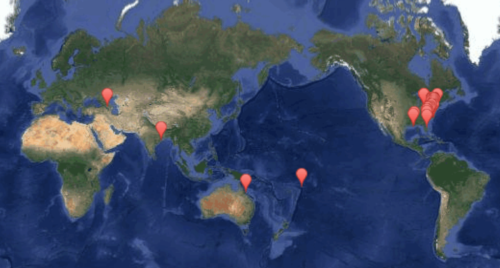
So we teamed up with the WWF pandas
And we figured out what our brand is
We combined our different strengths
And we even went to great lengths
To make our partnership somewhat formal
Calling ourselves Healthy Rivers for All.
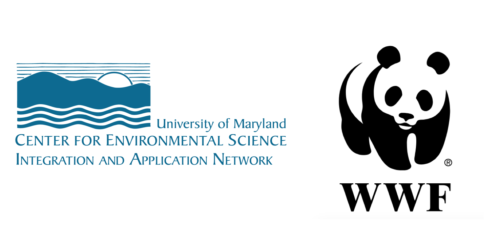
We wrote a Practitioner’s Guide
Making report cards somewhat simplified
Because it does not have to be hard
To produce your very own report card
So follow along with five simple steps
And you can flex your report card biceps.
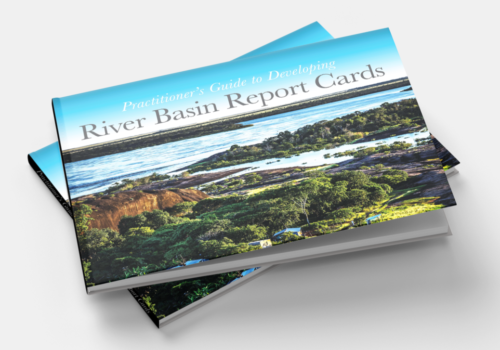
We even made a report card board game
And we found it to be actually NOT lame
We took it to conferences to be played
We are calling the game Get the Grade!
Players negotiate and even role play
Collaborating for better scores at the end of the day.

Last week we started teaching a report card class
So that we can share our knowledge en masse
We will post the lectures on our YouTube channel
And talk with our students using a Bluejeans panel
The students will summarize the class time conversations
And post a blog that we can share with many nations.

We post our results on a report card website
Highlighting places with problems and places that are all right
From the Orinoco River to Chesapeake Bay
And from the Willamette River to Guanabara Bay
The website serves as report card aides
Providing the data underlying the grades.
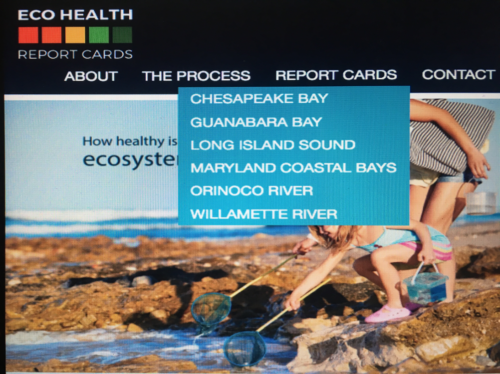
We surveyed folks who use the report card
We asked them questions that were not too hard
Like “Did the report card increase awareness?”
And they said yes, but in all fairness
Report cards take time to create behavior change
But given human nature, that result is not strange.
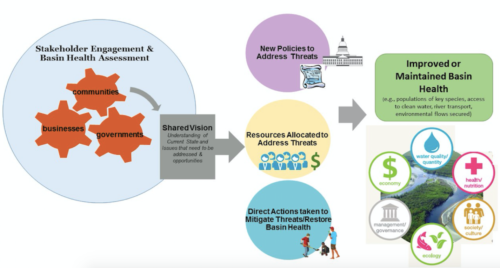
We developed a theory of change
Which helped us begin to arrange
The steps needed to create the intended results
Which are to reduce the ecological insults
Which may or may not make us all wealthy
But are sure to make our ecosystems healthy.
If you want to learn more, there is something you can do
Just check out ian dot umces dot edu
You can download the Practitioners Guide for free
And there are blogs you can read and seminars you can see
Symbols, images and reports you can download
We’d love to help you to go down the report card road.
About the author
Bill Dennison

Dr. Bill Dennison is a Professor of Marine Science and Vice President for Science Application at the University of Maryland Center for Environmental Science.

